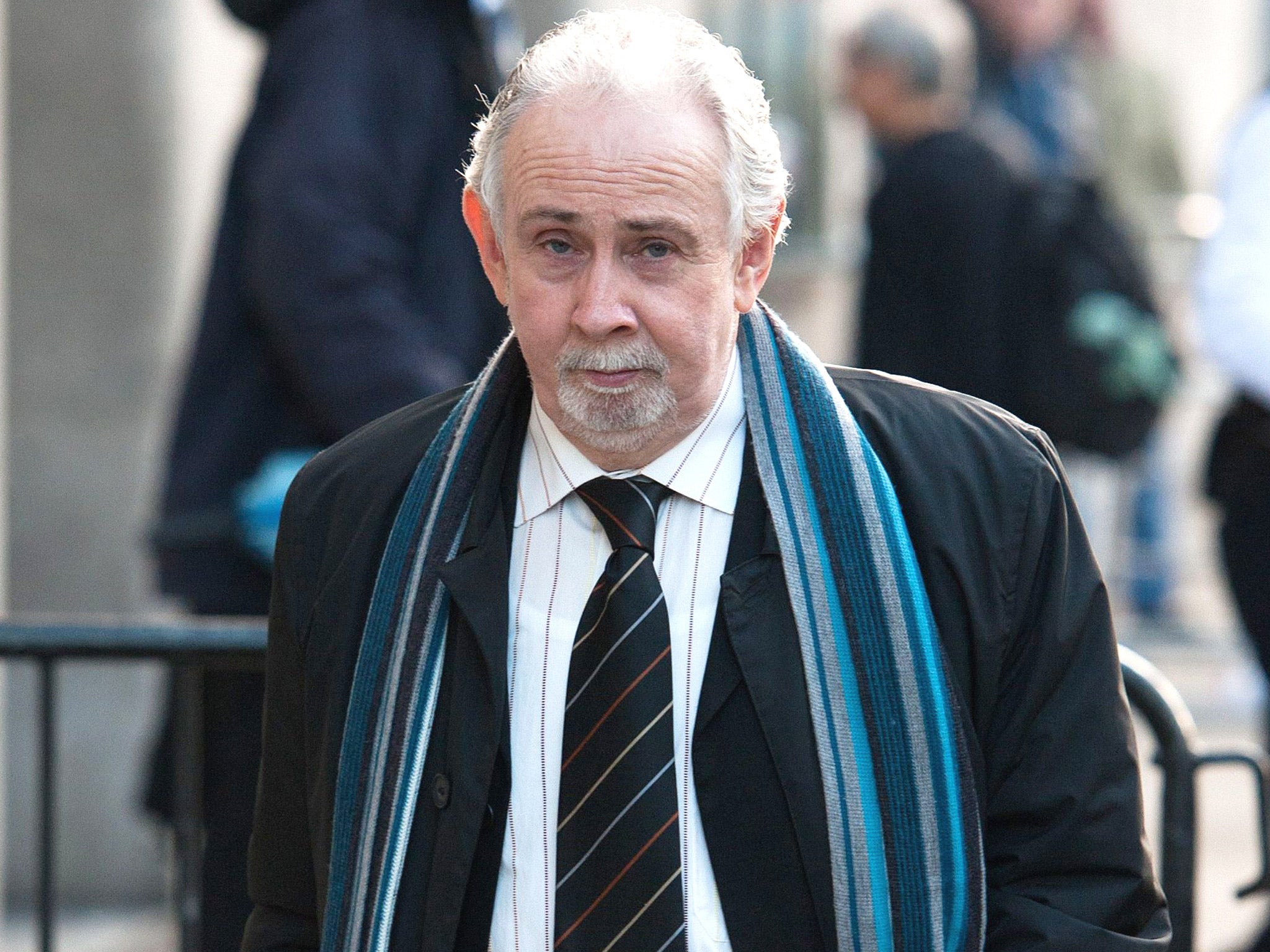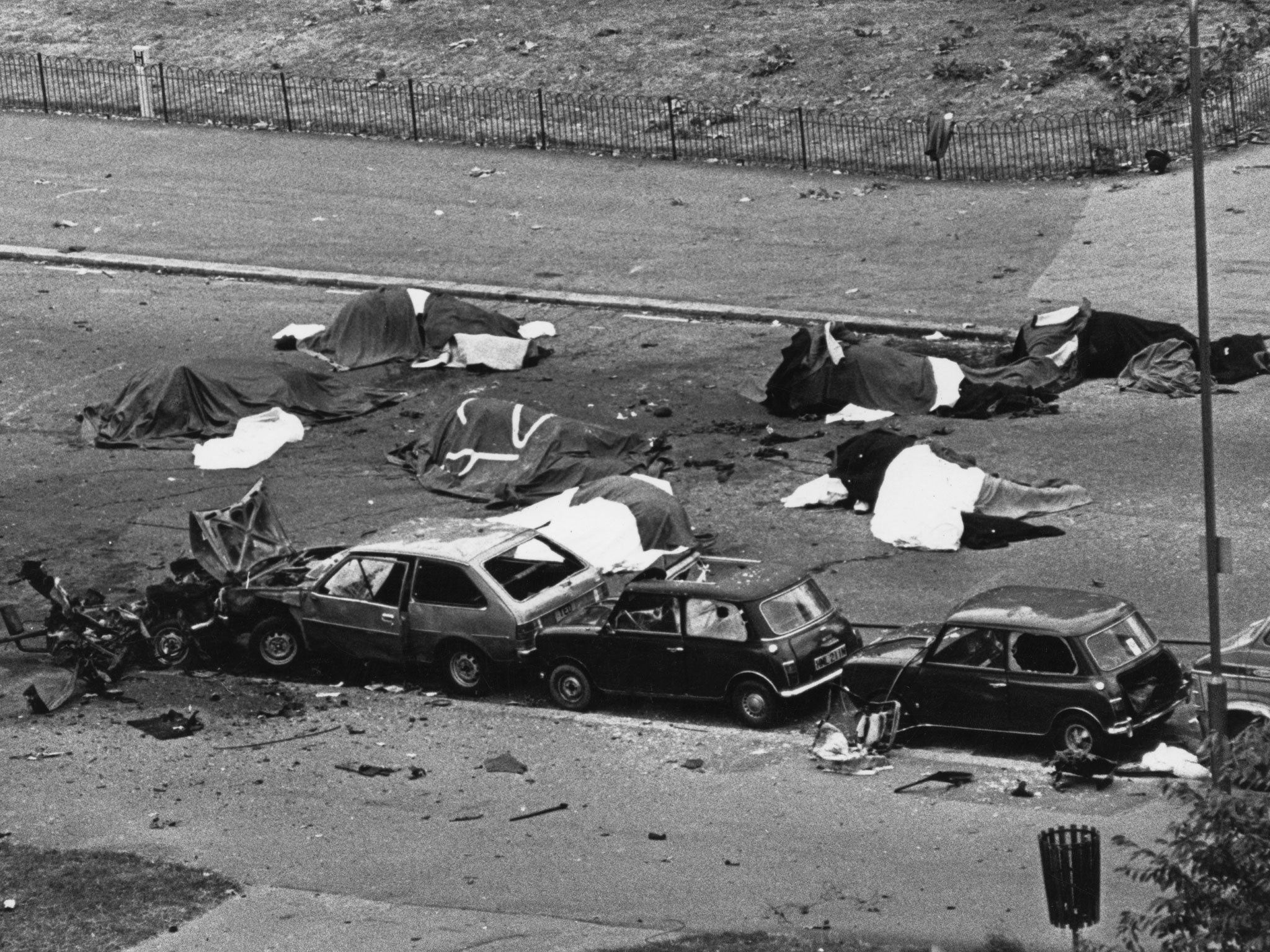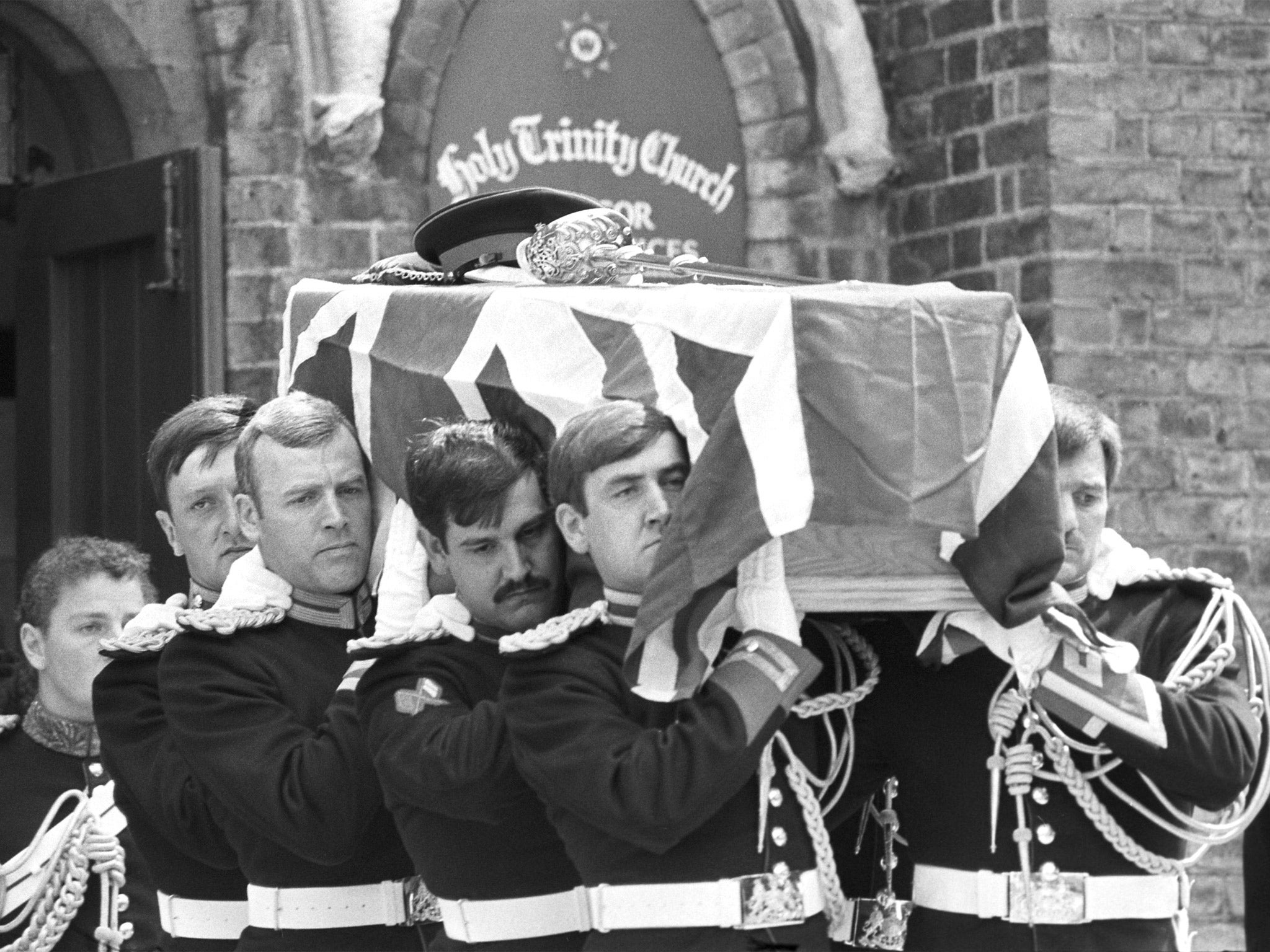IRA Hyde Park bombing suspect walks free after 'catastrophic' police error

Your support helps us to tell the story
From reproductive rights to climate change to Big Tech, The Independent is on the ground when the story is developing. Whether it's investigating the financials of Elon Musk's pro-Trump PAC or producing our latest documentary, 'The A Word', which shines a light on the American women fighting for reproductive rights, we know how important it is to parse out the facts from the messaging.
At such a critical moment in US history, we need reporters on the ground. Your donation allows us to keep sending journalists to speak to both sides of the story.
The Independent is trusted by Americans across the entire political spectrum. And unlike many other quality news outlets, we choose not to lock Americans out of our reporting and analysis with paywalls. We believe quality journalism should be available to everyone, paid for by those who can afford it.
Your support makes all the difference.A prime suspect for the murders of four soldiers by the IRA in the 1982 Hyde Park bombing walked free from court today after an extraordinary blunder by police and officials gave him effective immunity from prosecution.
John Downey, 62, was arrested at Gatwick Airport in May last year despite receiving a written assurance from the Government in 2007 that he was not wanted for prosecution under a deal struck as part of the Northern Ireland peace process.
But it emerged that the letter – one of 187 sent to those the authorities considered as wanted IRA terrorists who had fled abroad and wanted to return to Northern Ireland – was sent because of a catastrophic failure by police who missed a 30-year-old arrest warrant still outstanding for the Hyde Park bombings.
The error in sending him a so-called “On The Run” letter was uncovered six years ago but the authorities still pressed ahead with the prosecution despite warnings that it could cause huge damage to the peace process.
Mr Justice Sweeney, sitting in the High Court in London, yesterday threw out the case, saying there had been a “catastrophic failure” in sending the letter to Mr Downey, who has consistently denied any part in the Hyde Park attack. The judge any prosecution could not proceed to ensure “executive misconduct does not undermine public confidence in the criminal justice system and bring it into disrepute”.
The families of the murdered men reacted emotionally when they learned that Downey, who had pleaded not guilty to the charge, was likely to escape prosecution because of the blunder, which can be reported for the first time today after the prosecution said it would not appeal the ruling.
In a statement on behalf of the four soldiers killed, relatives said they were “devastatingly let down” and witheringly criticised the Police Service of Northern Ireland (PSNI).
They said: “This news has left us all feeling devastatingly let down, even more so when the monumental blunder behind this judgment lies at the feet of the Police Service of Northern Ireland.
“The end result is that the opportunity for the full chain of those terrible events will never be put in the public domain for justice to be seen to be done.”

The men - Lieutenant Anthony Daly, Corporal Roy Bright, Lance Corporal Jeffrey Young and Trooper Simon Tipper - were killed when a car bomb exploded as 16 members of the Household Cavalry Blues and Royals were passing for a Changing of the Guard ceremony. The blast also killed seven horses and injured 31 people. Mr Downey has always denied involvement in the Hyde Park Bombing.
The Hyde Park bombing was the first of two on the same day in London parks, with the second killing seven Royal Green Jackets bandsmen in one of the worst days of the IRA’s mainland bombing campaign.
Mr Downey was identified as a suspect for the Hyde Park bombing within two months of the attack after what was believed to be his fingerprint was found on a parking ticket in the car containing the nail bomb.
A warrant for his arrest issued in 1983 and he was named in the British press but a decision was made by then Attorney General Sir Patrick Mayhew not to seek his extradition from Ireland in 1989 because of a lack of evidence.
24 years later, Mr Downey, allegedly a former active member of the IRA, was arrested at the request of Scotland Yard’s anti-terrorist branch as he travelled through Gatwick Airport last year for a family sailing holiday in Greece.
He was charged three days later with the murders of Corporal Roy Bright, 36; Lt Anthony Daly, 23; Trooper Simon Tipper, 19; and Lance Corporal Jeffrey Young, 19.
Mr Downey, an oyster farmer from Donegal who has repeatedly denied any involvement in the attack, was sent a so-called OTR ("On the Run”) letter by mistake in 2007 but the authorities failed to correct the blunder when it was uncovered a year later.
The letters were sent to men who were wanted by the British authorities for terrorist attacks but were outside of the UK and wanted to return to Northern Ireland. The issue was pushed hard by Sinn Fein as part of negotiations that resulted in the Good Friday Agreement in 1998 that cleared the way for the Northern Ireland Assembly in 2007.
Mr Downey had believed that he was not at risk of prosecution as he had travelled through Britain on a number of occasions, including visiting his daughter at university in England, and to take foreign holidays. He said that he had also travelled to the North nine or 10 times – sometimes in the company of police – for meetings aimed at building confidence between the two sides.
The fact that he had not been arrested on previous trips to London was attributed to poor border checks. It is understood that it was only “pure luck” that he was identified from passenger lists when he was finally arrested.

Republican politicians reacted with fury at the arrest and three-month detention at Belmarsh top security prison. At the time of his arrest, a spokesman for Sinn Fein said it was “vindictive, unnecessary and unhelpful”, while his legal team said it was a “ grave breach of trust with incalculable consequences for the continuation of the peace process”.
In a statement to the court, Tony Blair’s former chief of staff Jonathan Powell said that letter was designed to give an assurance “ that the individual would not be subject to arrest and subsequent prosecution if he or she returned to the United Kingdom”.
The letter to Mr Downey, sent on 20 July 2007 by the Northern Ireland Office, said: “The Secretary of State for Northern Ireland has been informed by the Attorney General on the basis of information currently available there are no outstanding directions for prosecution in Northern Ireland, there are no warrants in existence nor are you wanted in Northern Ireland for arrest, questioning or charging by the police.
"The Police Service of Northern Ireland are not aware of any interest in you from any other police force in the UK. If any outstanding offences come to light or if any request for extradition were to be received, this would have to be dealt with in the usual way."
The letters were at the centre of high-level negotiations within the Government and a letter from Peter Mandelson, then Northern Ireland Secretary, to Tony Blair warned that they were “extremely sensitive politically”.
Downey’s name was first mentioned as part of the On The Run scheme in 2002 but was not issued with a letter because of his alleged link to the Hyde Park attack.
But a calamitous error appeared to have been made in the spring and summer of 2007 after the foundation of the Northern Ireland Assembly and a unit of the new Police Service of Northern Ireland (PSNI) took on responsibility for Operation Rapid that led the inquiries before any letter could be issued.
In May, Downey was known to be wanted for questioning by the Metropolitan Police. But in the same month the PSNI said that he was not wanted by them and failed to check with Scotland Yard over the outstanding warrant.
Two months later, he was sent the letter. Panic set in at the police force a year later when they realised their error after the PSNI’s Historical Enquiries Team again investigated Mr Downey’s alleged involvement in the 1972 Enniskillen bombing.
During this investigation the crucial discovery was made that Mr Downey was still listed as wanted by the Metropolitan Police on the Police National Computer in connection with the Hyde Park Bombing. But no action was taken and the consequence yesterday was that Mr Downey walked away a free man.
Even if he had been successfully prosecuted for the bombing for the Hyde Park Bombing, he would have served only two years under the terms of the Good Friday Agreement. In 1987, Gilbert McNamee was charged with making the bomb and jailed for 25 years but in 1998 his conviction was quashed at the High Court.